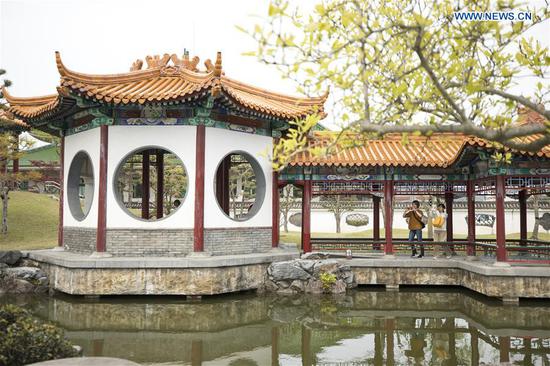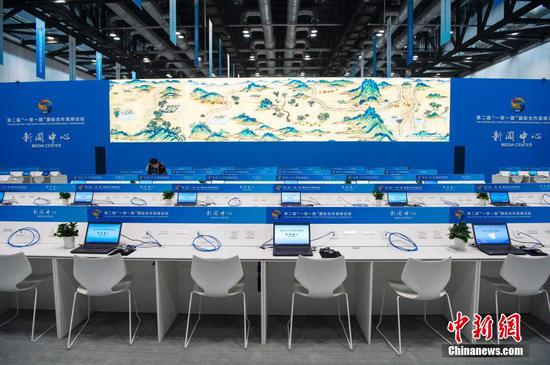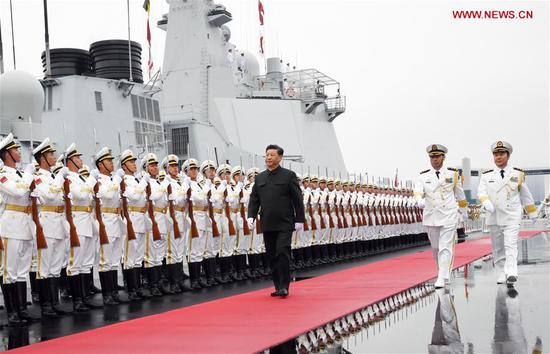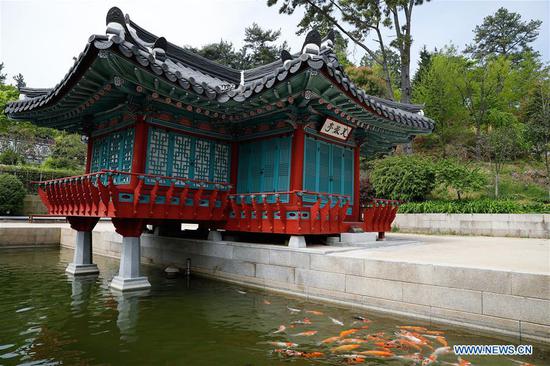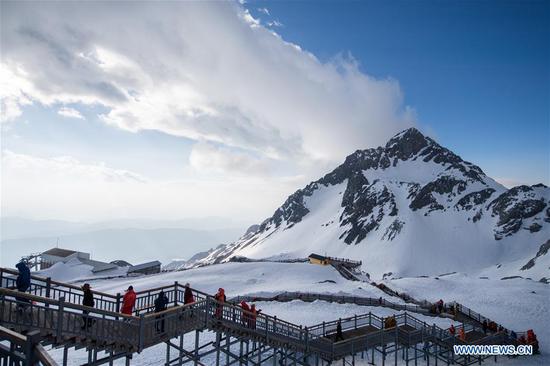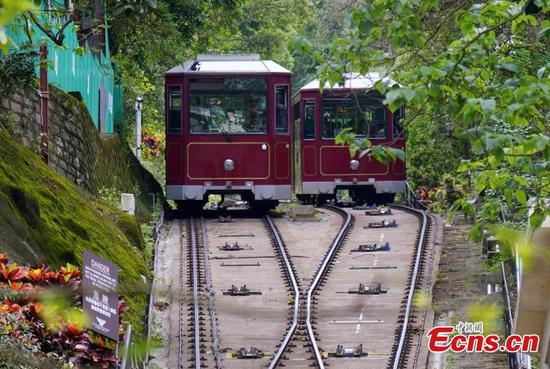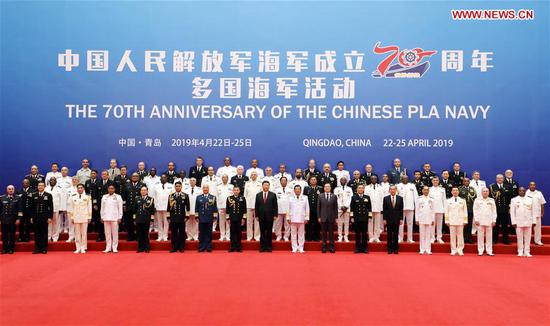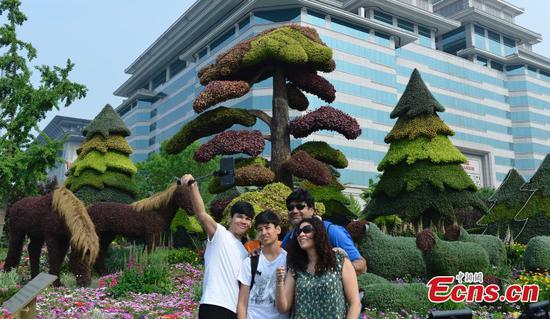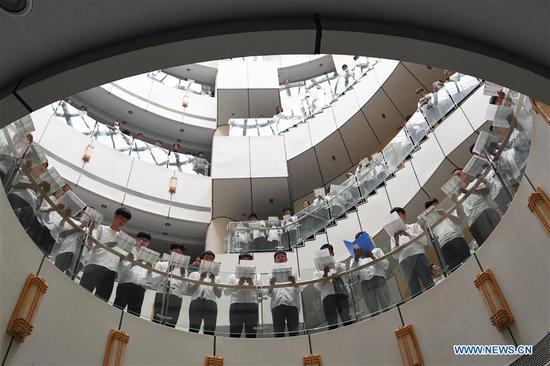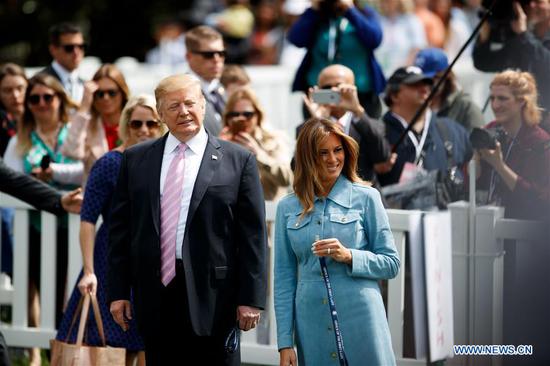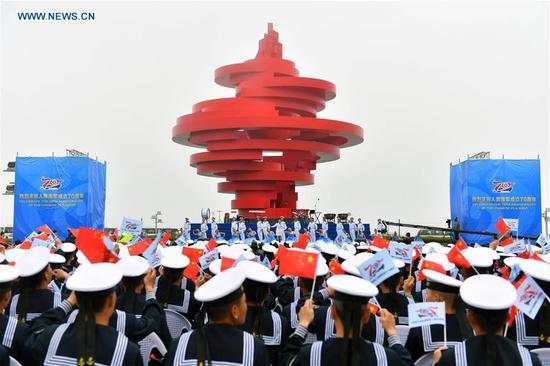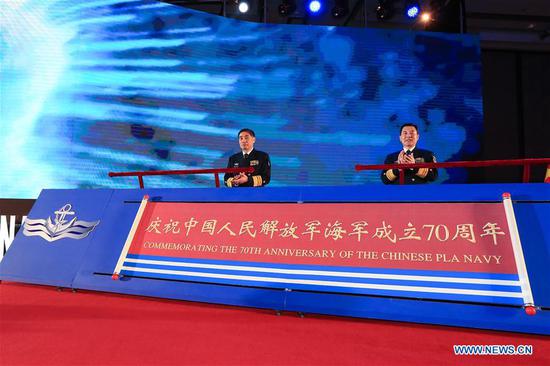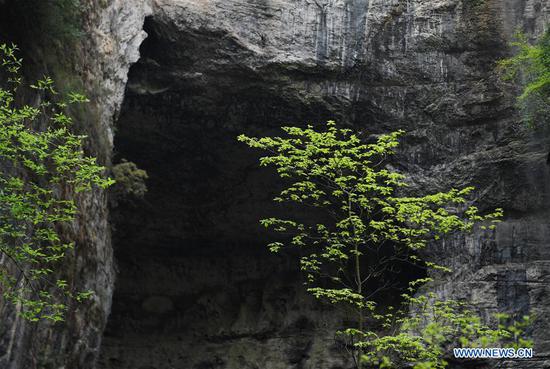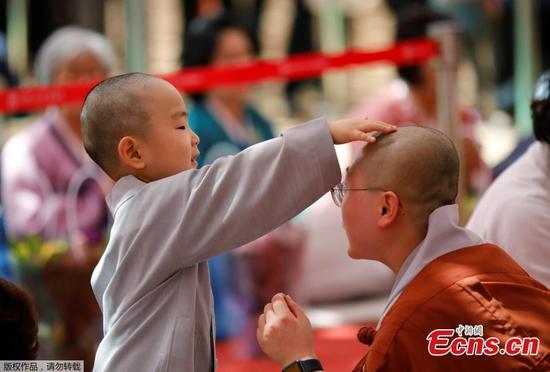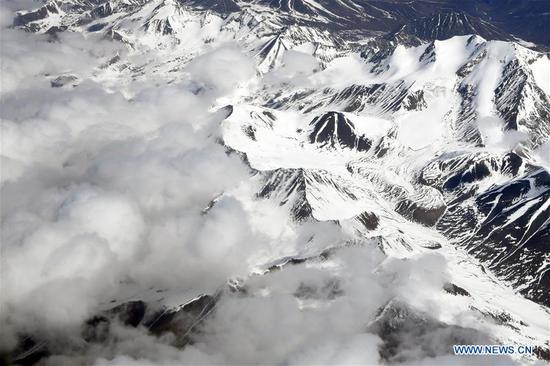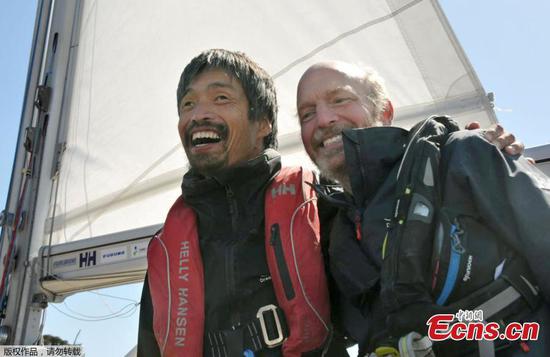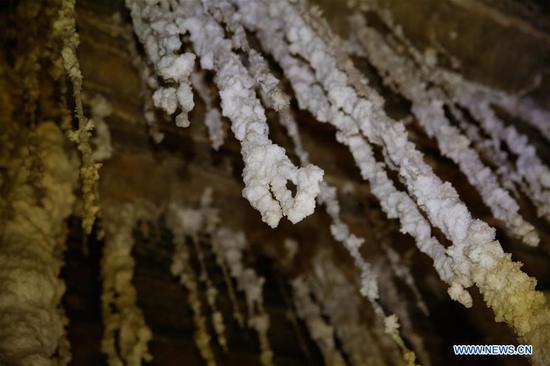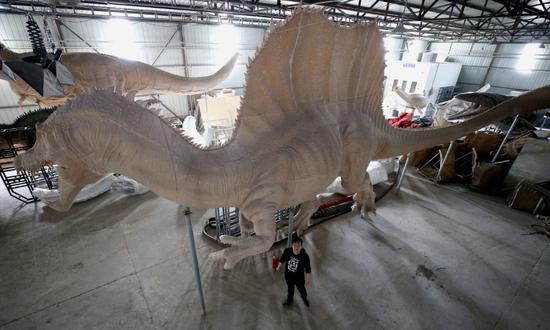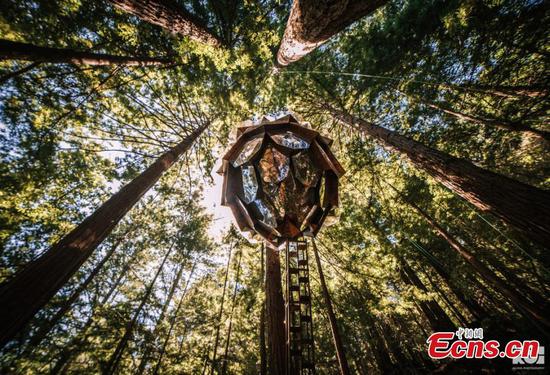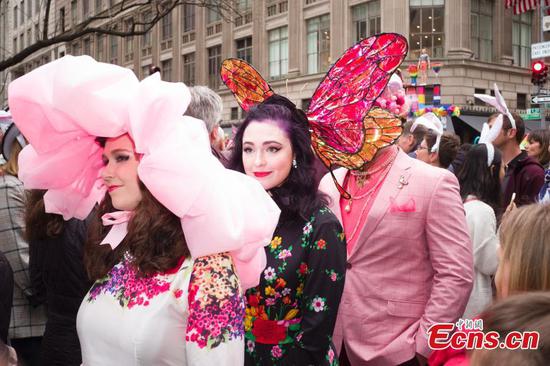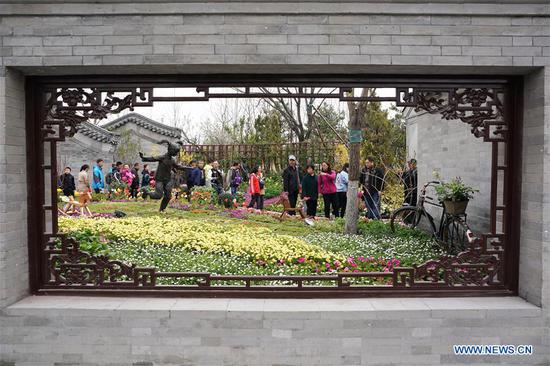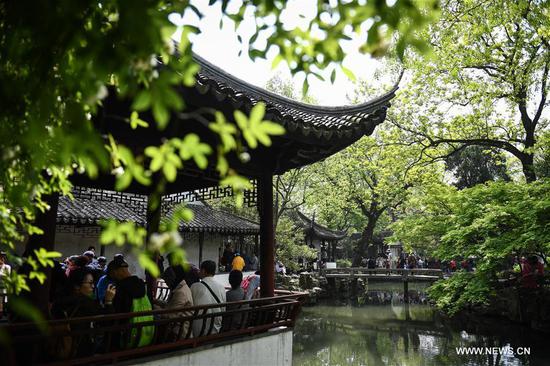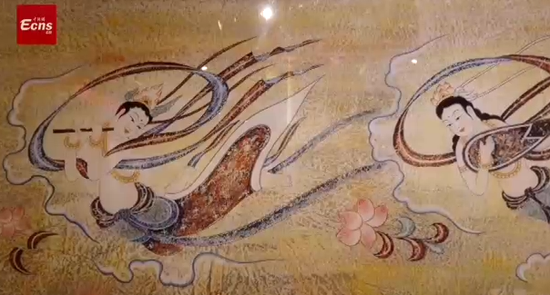The upcoming 2019 Beijing International Horticultural Exhibition offers valuable opportunities to showcase China's ecological civilization progress and to explore ways to model human civilization on the patterns and processes of nature, said several American ecological scholars in separate interviews with Xinhua.
The expo reveals China's willingness to share progress with the world, and pursue green development together, said John B. Cobb Jr., a 94-year-old member of the American Academy of Arts and Sciences, noting that the event offers great opportunities to showcase China's ecological civilization progress as well as its reform and opening-up achievements.
"I believe the expo will offer great experience in ecological agriculture, gardening and horticulture for developing countries," he added.
Cobb has been advocating green development and more efforts to avoid global ecological crises since 1970s. He is the author of more than 50 books and the founding president of the Institute for Postmodern Development of China (IPDC), a U.S. think tank and non-profit organization.
Calling the Beijing expo "an extremely important international moment," current IPDC President Philip Clayton said, "This allows for people from around the world to see the most recent innovations in Chinese horticulture."
It "brings together the friendship of people who roll up their sleeves and get their hands dirty in the dirt, and share their techniques and their excitement with each other," Clayton told Xinhua.
More than 110 countries and international organizations, as well as over 120 non-official exhibitors, have confirmed to participate in the 2019 Beijing expo, which is slated to kick off on April 29 at the foot of the Great Wall.
Brian G. Henning, chair and professor of Department of Environmental Studies at the Gonzaga University, told Xinhua that events such as the Beijing expo can be valuable opportunities for the public to explore ways that humans can work to model human civilization on the patterns and processes of nature.
"The beautiful complexity of plants and other organisms should be seen not as resources to be exploited but as models on which to base a thriving ecological civilization," he said, adding that as the world's two leading economies, China and the United States, should lead the world in addressing the climate crisis as well as toward the development of an ecological civilization.
Henning pointed out that he doesn't think that China and other rapidly developing nations should look to America and the West for advice on how to become an ecological civilization.
"For centuries the West has viewed nature with contempt, developing ever more aggressive ways to dominate nature, bending it to our will. This industrial mentality has brought us to this moment of ecological crisis," he said.
"In contrast, an ecological civilization is one that seeks to become an integral part of the wider community of life, working with nature, not against it."
"An ecological civilization recognizes that happiness is not well measured by the accumulation of material possessions but by meaningful human relationships within a flourishing natural world," he added.
"China would be wise to look not to the West for answers, but perhaps to its own ancient wisdom traditions such as Confucianism and Taoism for the basis of a genuinely ecological civilization," said Henning.
Henning has authored and edited several books and articles, including his most recent book -- Riders in the Storm: Ethics in an Age of Climate Change, assessing the challenges of climate change through an interdisciplinary study.









